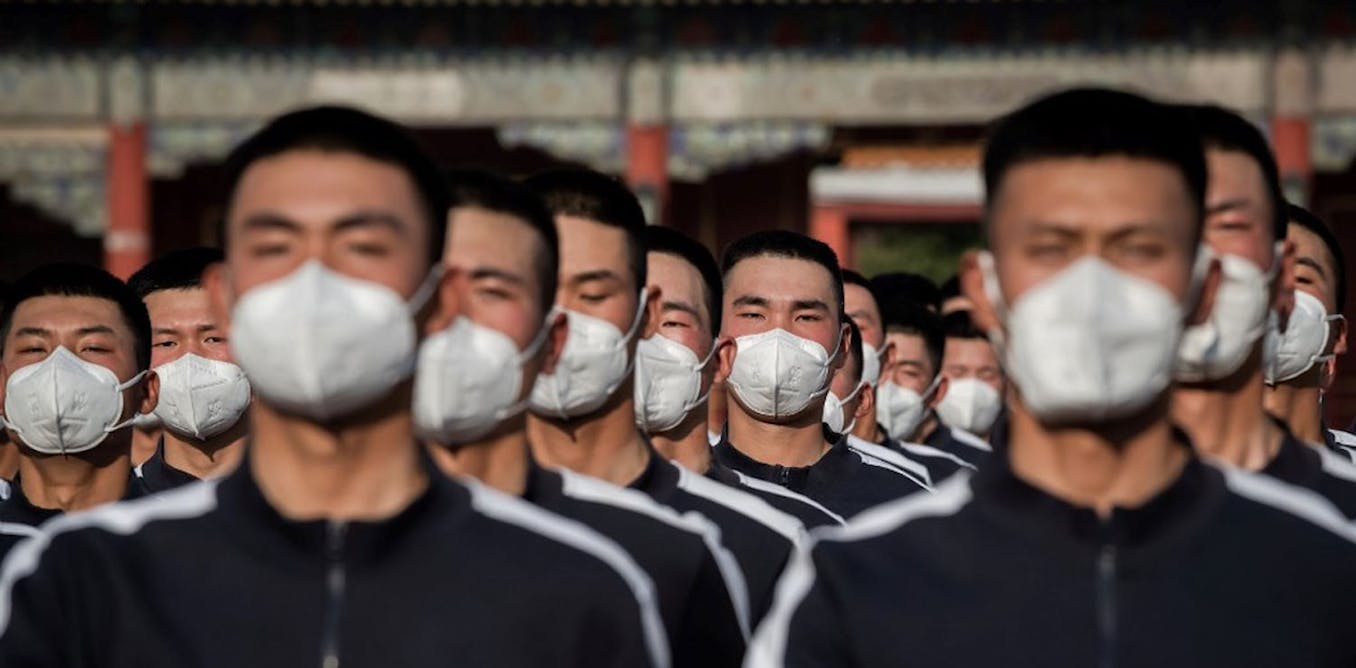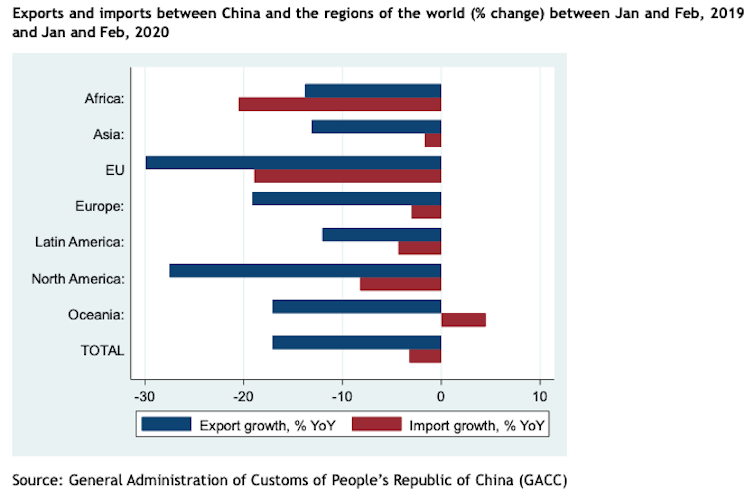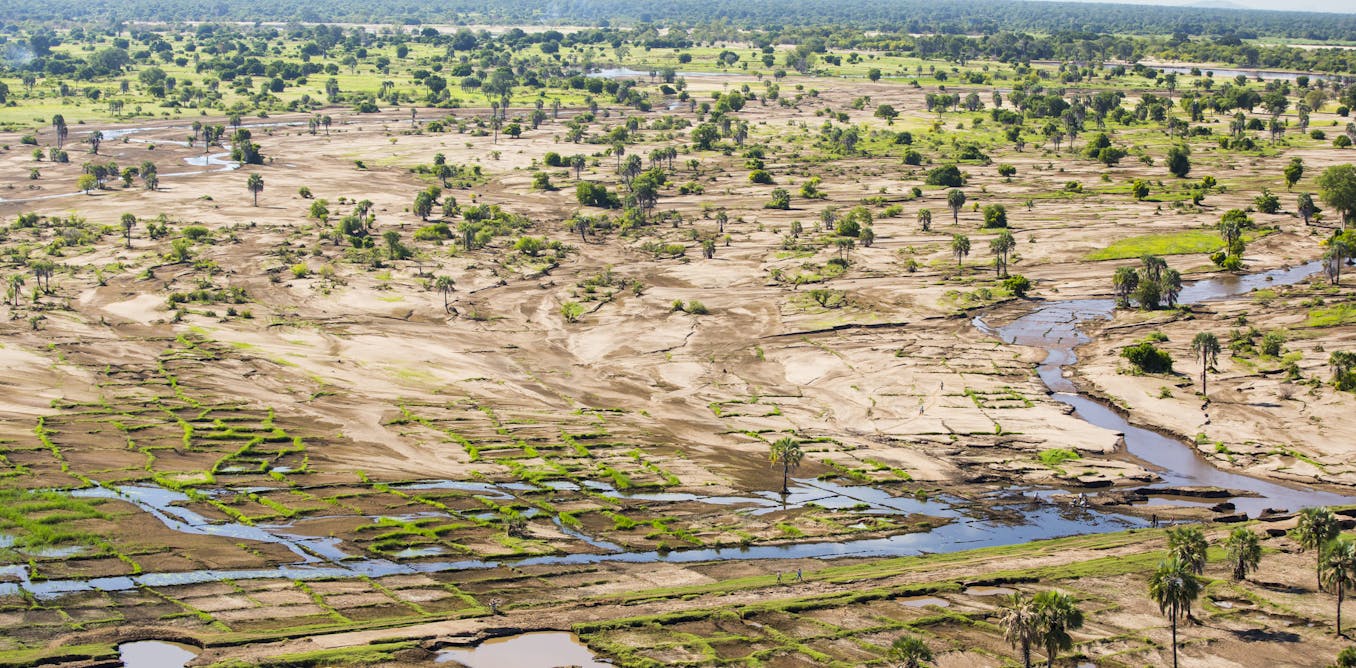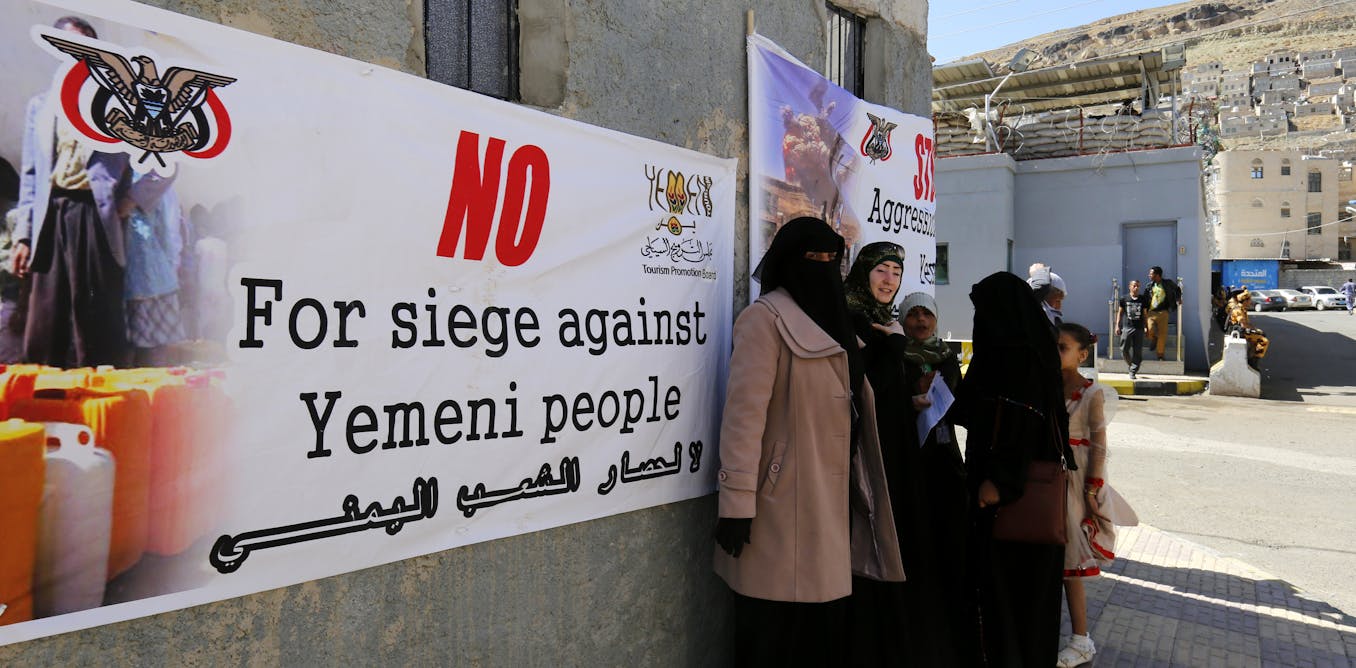Coronavirus weekly: where next for globalisation after the crisis?
This week, our experts are looking at the major trends in post-crisis globalisation.

As lockdown measures start to be eased in most countries around the world, the experts of The Conversation’s global network have focused this week on the major trends that are reshaping trade and the global economy.
Just before the pandemic struck, the economy was already losing momentum. However, the crisis is unlikely to put a stop to globalisation: rather, coronavirus is the starting point for a reconfiguration of the global system. Value chains are shortening in some sectors, China is seeking to extend government control over its economy, and global consumption has been undermined by the recession in the US.
Academics in our network analyse the impact of the pandemic on globalisation.

This is our weekly roundup of expert info about the coronavirus.
The Conversation, a not-for-profit group, works with a wide range of academics across its global network. Together we produce evidence-based analysis and insights. The articles are free to read – there is no paywall – and to republish. Keep up to date with the latest research by reading our free newsletter.
Reshuffling the deck
- China’s international trade mapped: In order to understand the magnitude of the economic shock of the Covid-19 pandemic, Jun Du, Agelos Delis, Mustapha Douch and Oleksandr Shepotylo of Aston University mapped China’s recent trade. They showed that worst-affected Chinese imports are machinery and luxury goods. As for exports, goods whose production is labour-intensive, such as furniture, have fallen drastically, as well as capital goods such as nuclear reactors. According to these economists, these trends could be long-lasting, as most countries become aware of the fragility of global value chains – without, however, completely undermining globalisation.

Tensions between Australia and China: Richard Holden of the Unversity of New South Wales wonders about the new tensions over barley and the impact that the crisis could have on relations between the two countries.
Return of the local economy: Some countries, faced with the uncertainties of the future, prefer to turn to more local forms of economy. This is the case in Canada, particularly in the area of fisheries. Kristen Lowitt of Brandon University and Charles Z. Levkoe of Lakehead University have looked at policies in north-western Ontario trying to help local people to benefit more from the fish caught in the Thunder Bay area, which are generally destined for export.
Golden days are over: Before the pandemic, the global economy was already showing signs of fragility against the backdrop of trade tensions between China and the US. Countries had been building up their gold reserves, but then just before the COVID-19 pandemic, demand slowed. “In truth, this was not entirely surprising”, writes Drew Woodhouse (Sheffield Hallam University). “Purchasing bullion at close to a seven-year high, and after a month of prices fluctuating plus or minus about 13%, is no particularly prudent way to consolidate economic and geopolitical power.”
China’s recovery
- Protection and control: Chinese Premier Li Keqiang gave a 55-minute speech at China’s National People’s Congress on May 22, which had been postponed for two months due to the pandemic, in which he outlined the government’s recovery strategy. He set out a roadmap, deciphered by Jane Duckett, Holly Snape, Hua Wang, Yingru Li (University of Glasgow), with two watchwords: “protection” and “control”. Li stressed that continued vigilance against the coronavirus will be a core thread determining everything from macro-level strategy down to micro-level policy for the foreseeable future in China.
Hard times
- On your own: The economic crisis is hitting the US hard – tens of millions of Americans are now registering for unemployment as companies close and lay off workers. Despite the federal government’s efforts, people are unable to meet their immediate financial needs for food, care and shelter. As Paul Shafer (Boston University) details, the crisis reveals the major flaws in the American social safety net.
Globally, the pandemic has also hit developing countries hard.
- Food insecurity: Borja Santos Porras (IE University) is concerned about the poverty and food insecurity that the crisis is causing in low-income countries. They believe that these two factors could kill more people than the disease itself.
Pandemic poverty: In Indonesia, the poorest are also at the mercy of the virus. Fisca Miswari Aulia (BAPPENAS), Maliki (BAPPENAS) and M Niaz Asadullah (University of Malaya) estimate that an additional 3.6 million people could face poverty as a result of the pandemic.
Refugees struggling: In East Africa, it is the plight of refugees in Nairobi that interests Naohiko Omata (University of Oxford). He points out that these populations have very low incomes, most often generated by daily street sales, and are directly affected by the disease.
Get the latest news and advice on COVID-19, direct from the experts in your inbox. Join hundreds of thousands who trust experts by subscribing to our newsletter.![]()
What's Your Reaction?































































































